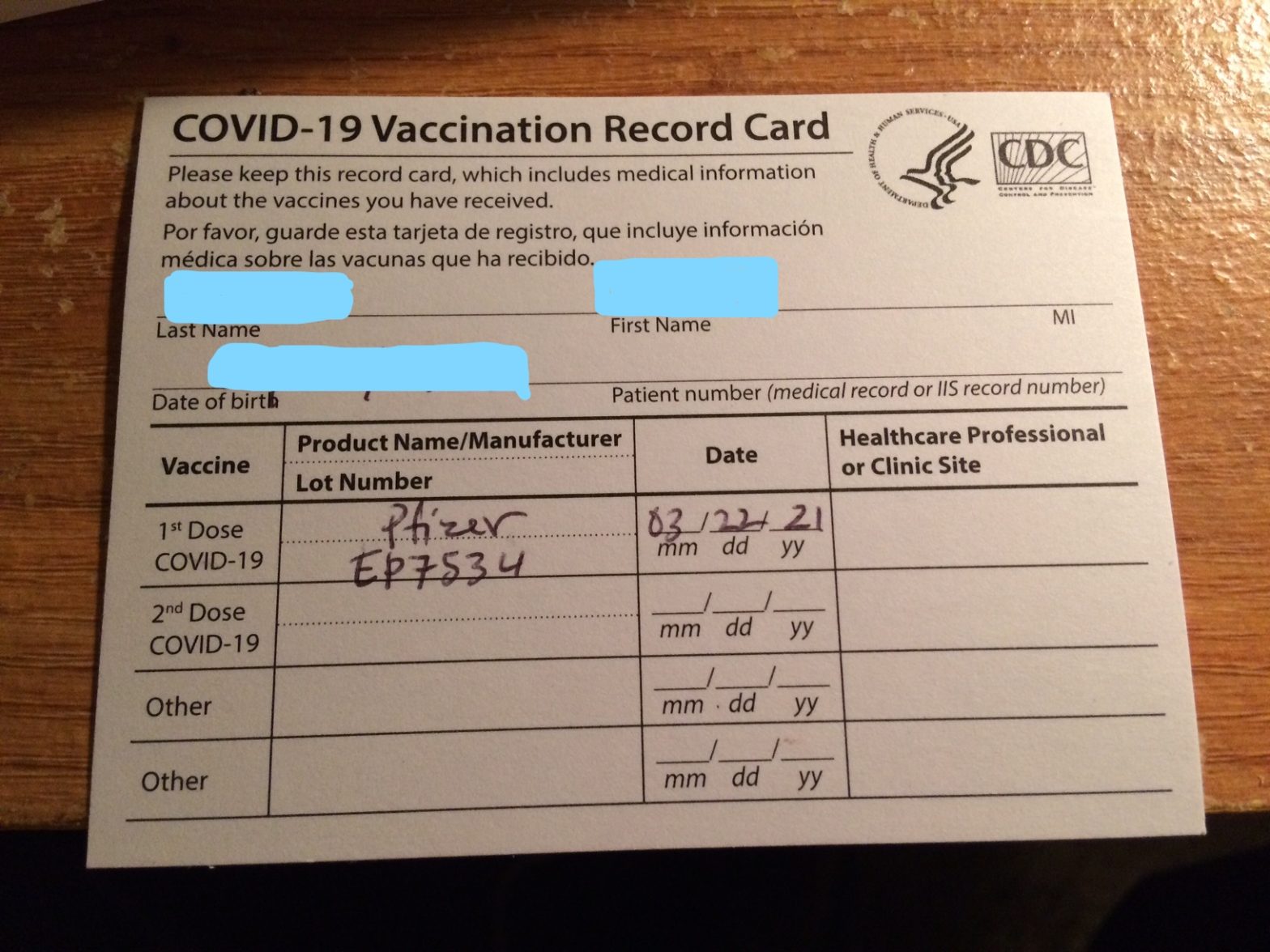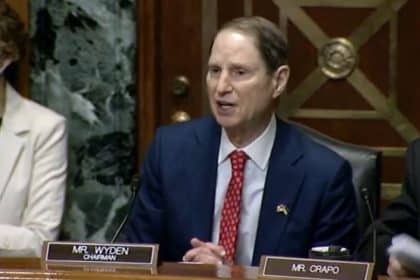Posting Vaccine Cards Online Could Attract Scammers

As vaccine eligibility expands to those 16 and over in many states, the Federal Bureau of Investigation is warning those getting shots against posting photos of their vaccine cards online.
“I’ve seen people wanting to be proud and show off that they got their first vaccine, not thinking of the information they were putting out there,” FBI special agent Jeanette Harper told The Well News.
Vaccine cards are given as “second dose reminders” for when to receive a second shot, as the intervals of when to get a second shot varies depending on what vaccine has been administered and where.
However, vaccine cards also contain privileged health information such as name, date of birth, type of vaccine, and where and when the individual was vaccinated.
Which means posting a vaccination card online could result in your vaccine card being scammed.
“When we work with our partners in the hospitals some of them have noted that they’ve started seeing fake vaccine cards come in, and people trying to show they’ve already received the vaccine but haven’t,” explained Harper.
Posting a vaccine card online may also unravel patient privacy protections afforded by the Health Insurance Portability and Accountability Act.
The Health Insurance Portability and Accountability Act, also known as the Kennedy–Kassebaum Act,is a federal statute enacted by the 104th United States Congress and signed into law by President Bill Clinton on August 21, 1996.
It was created primarily to modernize the flow of healthcare information, stipulate how personally identifiable information maintained by the health care and health care insurance industries should be protected from fraud and theft, and address limitations on health care insurance coverage.
The HIPAA Privacy Rule regulates the use and disclosure of protected health information held by “covered entities,” such as health care clearinghouses, employer-sponsored health plans, health insurers, and medical service providers that engage in certain transactions.
“So, say your primary physician provided you with your first vaccine, you’re giving people the ability to reach out to your physician and get your personal records from them,” Harper explained.
According to a report issued by the Better Business Bureau, scammers have also started selling vaccine cards online for profit.
In Great Britain, a TikTok user shared a video advertising the sale of vaccination records for £5 and linked a Shopify page where the cards could be purchased.
The Federal Trade Commission reported $117 million in losses from COVID-19 scams only six months into the pandemic.
Fraudsters will often message from fake social media accounts to offer COVID-19 tests, HHS grants, and Medicare prescription cards in exchange for personal details, as reported by the US Department of Health and Human Services who urges online users to, “ignore offers or advertisements for COVID-19 testing or treatments on social media sites.”
“We’ve seen text messages to those scammed saying, ‘We found a place where you can get a vaccine, we can get you an appointment here at this location- just text me your personal information and medical information and we will set you up with an appointment,’” explained Sandra Guile, a spokesperson at the Better Business Bureau which tracks scam activity.
As vaccines become more available to Americans, there will be new scams, and Guile recommends contacting local health departments or local doctor’s offices, and not just clicking on any vaccine information online.
“And for those wanting to share the excitement of having received the vaccine we just recommend posting the ‘I got vaccinated,” sticker,’” stated Guile.

























